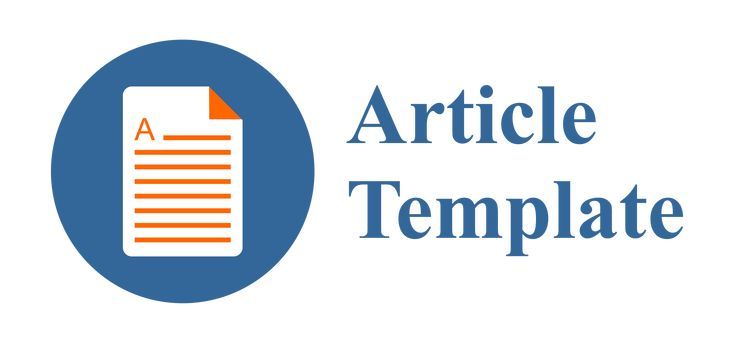Teknologi Blockchain berbasis Non Fungible Token sebagai Penghargaan Partisipasi Donor Darah
DOI:
https://doi.org/10.29408/edumatic.v8i2.28005Keywords:
blockchain, blood donors, ethereum, nft, web3Abstract
Non-fungible tokens (NFTs) are a technological innovation that has been widely used to provide a form of digital reward. However, the application of NFTs in the social domain, especially in blood donation programs, has not been widely explored. This research aims to develop an NFT-based reward system using blockchain technology as an appreciation for blood donors. The system is designed and developed using the Ethereum test network due to its stability in decentralized applications. This research uses the research and development (R&D) method with the 4D model approach, which consists of the Define, Design, Develop, and Disseminate stages. In the Define stage, a needs analysis was conducted to determine the system specifications. The Design stage involves the design of a web-based system3 to support NFT management. In the Develop stage, the system was developed using the Ethereum testing network. The Disseminate stage includes system testing using the black box method to ensure that all key features, such as NFT claims and data transparency, function properly. The result of the research is an NFT-based blockchain application that allows blood donors to easily claim their NFTs as a form of digital recognition. The evaluation showed an acceptability score of 61.34%, indicating that this application is acceptable to the community and has the potential to increase blood donor motivation. The implementation of this system is expected to have a sustainable positive impact on increasing blood donor participation in the future.
References
Aksoy, B. Y., & Abri, R. (2023). Exploring the Potential of Decentralized Currency for E-Commerce: Case Study of an E-Commerce Website Using Decentralized Currency. International Conference on Pioneer and Innovative Studies, 351-356. Konya, Turkey: All Sciences Academy. https://doi.org/10.59287/icpis.855
Al-Faruq, M. N. M., Nur’aini, S., & Aufan, M. H. (2022). Perancangan UI/UX Semarang Virtual Tourism Dengan Figma. Walisongo Journal of Information Technology, 4(1), 43-52. https://doi.org/10.21580/wjit.2022.4.1.12079
Alimchandani, A., Kolipineni, J., Vemula, R., & Yadlapalli, P. (2023). Redefining Organizational Structures: a Framework for Decentralized Autonomous Organizations (DAOS) Utilizing Ethereum Blockchain Technology. In International Journal of Applied Engineering & Technology, 5(4), 3447-3454.
Cao, L. (2022). Decentralized AI: Edge Intelligence and Smart Blockchain, Metaverse, Web3, and DeSci. IEEE Intelligent Systems, 37(3), 6-19. https://doi.org/10.1109/MIS.2022.3181504
Chang, S. E., & Chen, Y. (2020). Blockchain in Health Care Innovation: Literature Review and Case Study From a Business Ecosystem Perspective. JMIR: Journal of Medical Internet Research, 22(8), e19480. https://doi.org/10.2196/19480
Fadhilah, A. M. I., Nurdiawan, O., & Basyisyar, F. M. (2023). Pengembangan Sistem Informasi Berbasis Web Smart Contract Pada Blockchain Berbasis NFT. In Jurnal Mahasiswa Teknik Informatika, 7(1) 776-783. https://doi.org/10.36040/jati.v7i1.6538
John, K., Kogan, L., & Saleh, F. (2023). Smart Contracts and Decentralized Finance. Annual Review of Financial Economics, 15, 523-542. https://doi.org/10.1146/annurev-financial-110921-022806
Ko, H., Oh, J., & Kim, S. U. (2024). Digital Content Management Using Non-Fungible Tokens and the Interplanetary File System. Applied Sciences (Switzerland), 14(1), e14010315. https://doi.org/10.3390/app14010315
Martínez Luna, W. F., Moreno Ballesteros, A. M., & Ruiz Dorantes, E. J. (2024). Linking a Digital Asset to an NFT—Technical and Legal Analysis. Laws, 13(5), e13050059. https://doi.org/10.3390/laws13050059
Mukhlis, I. R. (2022). Sistem Informasi Donor Darah Sistem Informasi Donor Darah Berbasis Web Menggunakan Framework CodeIgniter Pada Unit Transfusi Darah Palang Merah Indonesia (UTD PMI) Lumajang. JATISI (Jurnal Teknik Informatika Dan Sistem Informasi), 9(2), 1449-1465. https://doi.org/10.35957/jatisi.v9i2.2082
Pal, O., Alam, B., Thakur, V., & Singh, S. (2021). Key management for blockchain technology. ICT Express, 7(1), 76-80. https://doi.org/10.1016/j.icte.2019.08.002
Radermecker, A.-S. V., & Ginsburgh, V. (2023). Questioning the NFT “Revolution” within the Art Ecosystem. Arts, 12(1), e12010025. https://doi.org/10.3390/arts12010025
Salsabila, A. H., Iriani, T., & Sri Handoyo, S. (2023). Penerapan Model 4D Dalam Pengembangan Video Pembelajaran Pada Keterampilan Mengelola Kelas. Jurnal Pendidikan West Science, 1(08), 495-505. https://doi.org/10.58812/jpdws.v1i08.553
Sanjaya, M., & Saputra, P. R. N. (2023). Pemanfaatan NextJS dan MongoDB Dalam Sistem Informasi Web Manajemen Data Beras Pada UD SRI UTAMI. Information System for Educators and Professionals: Journal of Information System, 8(1), 25-36. https://doi.org/10.51211/isbi.v8i1.2414
Smajgl, A., & Schweik, C. M. (2022). Advancing sustainability with blockchain-based incentives and institutions. Frontiers in Blockchain, 5, 963766. https://doi.org/10.3389/fbloc.2022.963766
Sultana, S. A., Rupa, C., Malleswari, R. P., & Gadekallu, T. R. (2023). IPFS-Blockchain Smart Contracts Based Conceptual Framework to Reduce Certificate Frauds in the Academic Field. Information (Switzerland), 14(8), 14080446. https://doi.org/10.3390/info14080446
Sun, J., Yao, X., Wang, S., & Wu, Y. (2020). Blockchain-Based Secure Storage and Access Scheme for Electronic Medical Records in IPFS. IEEE Access, 8, 59389 - 59401. https://doi.org/10.1109/ACCESS.2020.2982964
Tanwar, N., & Thakur, J. (2023). Patient-centric soulbound NFT framework for electronic health record (EHR). Journal of Engineering and Applied Science, 70(33), e00205-9. https://doi.org/10.1186/s44147-023-00205-9
Tavares, R., Sousa, J. P., Maganinho, B., & Gomes, J. P. (2023). Gamers Reaction to the Use of NFT in AAA Video Games. Procedia Computer Science, 219, 606-613. https://doi.org/10.1016/j.procs.2023.01.329
Wu, C. H., & Liu, C. Y. (2023). Educational Applications of Non-Fungible Token (NFT). Sustainability (Switzerland), 15(1), e15010007. https://doi.org/10.3390/su15010007
Downloads
Published
How to Cite
Issue
Section
License
Copyright (c) 2024 Alif Safa Moleo, Tasrif Hasanuddin, Herdianti Darwis, Harlinda Harlinda

This work is licensed under a Creative Commons Attribution-ShareAlike 4.0 International License.
All articles in this journal are the sole responsibility of the authors. Edumatic: Jurnal Pendidikan Informatika can be accessed free of charge, in accordance with the Creative Commons license used.

This work is licensed under a Lisensi a Creative Commons Attribution-ShareAlike 4.0 International License.




